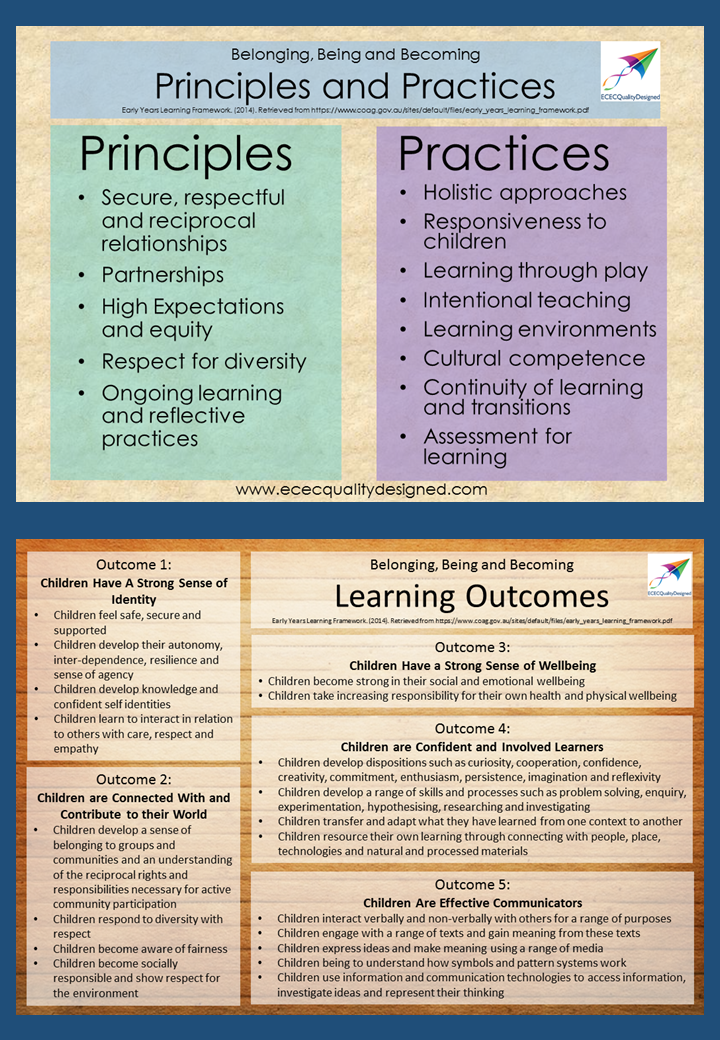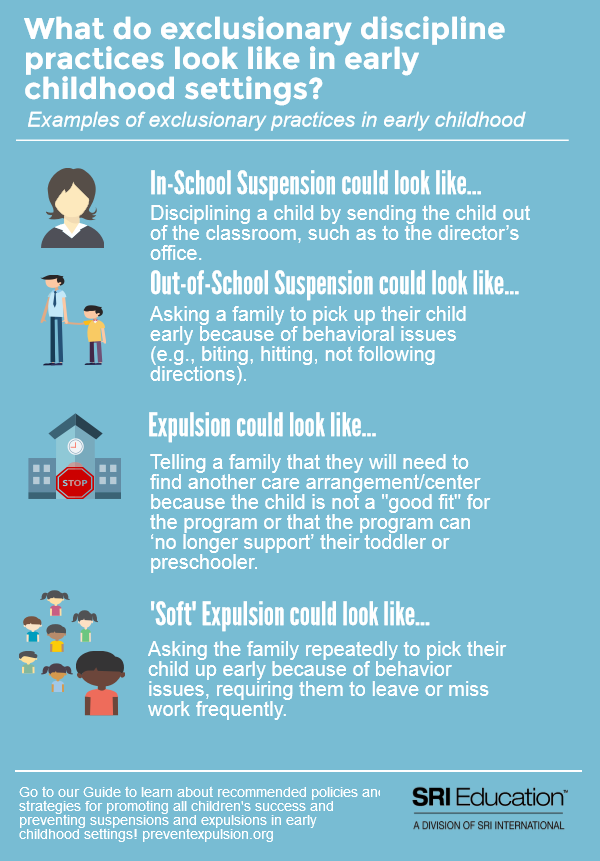How to gain respect from your child
10 Ways to Get Your Children to Respect You
A good friend of mine is an upstanding member of the community. He is hard-working, profitable in business, conducts himself with integrity, and has played leadership roles in a number of local charitable causes. He has made a concerted effort to earn respect in his town and has succeeded. Yet the one person who should respect him most is his son—and that has been a struggle.
Families simply can’t function without respect, but the more we push for it, the more elusive it seems to be. So what’s the answer? Why won’t children fall into line? Why don’t they give respect when we demand it? What could possibly help? There are no easy answers, but there are steps to take in a better direction. If you want to earn respect from your children, do these 10 things.
1. Respect your children.
This is going to look different from child to child, but you know when you’re disrespectful and so do they. As parents, respect is something we can teach by doing.
2. Respect their mother.
The relationship between parents sets the tone for the greater family dynamic. When children witness mom and dad treating one another with love and respect despite their differences, the standard has been set. On the other hand, when kids witness their parents bringing one another down, it’s an uphill climb to get to respect from there.
3. Be consistent.
Children need to know what to expect. Your inconsistency leaves kids floundering. You must be consistent in order to earn respect.
4. Follow through.
In other words, tell the truth. Think carefully before you lay out a potential consequence because the moment you fail to follow through, you lose credibility and respect.
5. Spend more time teaching love than teaching rules.
Love does not demand respect. Love commands respect.
Children who are taught the connection between love and discipline can accept consequences more easily than those who are governed exclusively by “chapter and verse.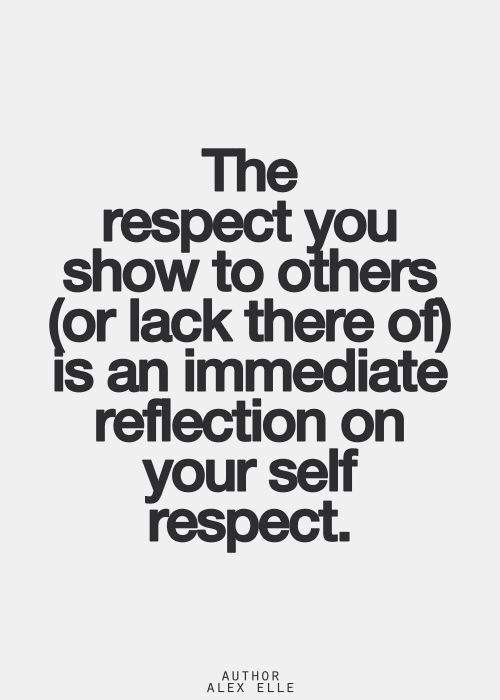 ” Love does not demand respect. Love commands respect.
” Love does not demand respect. Love commands respect.
Children are master observers. Having a solid work ethic, paying bills, giving charitably, helping others, leaving generous tips, talking positively about others behind their backs. All of this helps build and sustain the kind of character our kids will respond to with respect.
7. Be a family.
Do you consider your family worthy of your best? Is your family job one? Then you need to be proactive about family life. Have meals together, give each other undivided attention, have game nights, take vacations.
8. Be a leader.
Don’t just love—love from the front. Parents are family leaders, and one way to lead is to love from the front. Serve your family members. Listen to their needs and respond with care.
9. Don’t try to be their friend.
Don’t even worry about being loved back. Just be their father. You are there to love them and part of that is protecting them from themselves. Do what is best for them even when they disagree.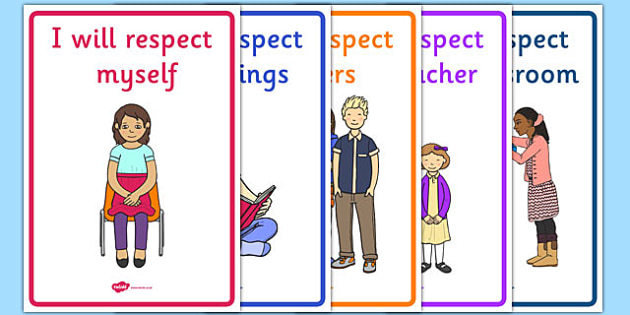
10. Tell the truth.
Tell the truth about what your values are and then live them. Also, tell the truth about your love and then love with as much energy as you can muster. Be genuine, let your gifts come through, and do your best at being your authentic self.
Sound off: How have you earned respect from your kids?
Teaching Kids Respect | Teaching Children Respect
We often forget that children aren’t born with a built-in sense of respect for others. Our children need to be taught to be respectful.
Think about it, babies are born having to manipulate their world to get their needs met, and they do this primarily by crying. Crying is natural and appropriate for babies—it’s how they communicate that they’re hungry or wet or need to be held.
But as kids get older, it’s our job as parents to teach them respectful ways of getting their needs met. And crying, manipulation, and disrespect are certainly not respectful ways to accomplish this.
Unfortunately, many kids have not been taught respect or choose not to be respectful even though they know better. Indeed, it’s common to see children and teens arguing with adults (or ignoring them outright), using foul language, copping an attitude, and not using manners or respecting those in authority. Sadly, this has become the norm for many children and teens.
In my opinion, YouTube, movies, music, and video games all seem to glorify a disrespectful, angry, rude way of dealing with others. As a result, we have to work harder as parents to teach our kids to be respectful.
More importantly, though, many parents have not established a firm culture of accountability in their homes. Part of the problem is that parents are often busy, making it much harder to respond immediately to our kids. Let’s face it, it’s easier to let things slide when you’re worn out and stressed from working so hard.
Finally, I believe that many parents have a hard time looking at their kids in a realistic light.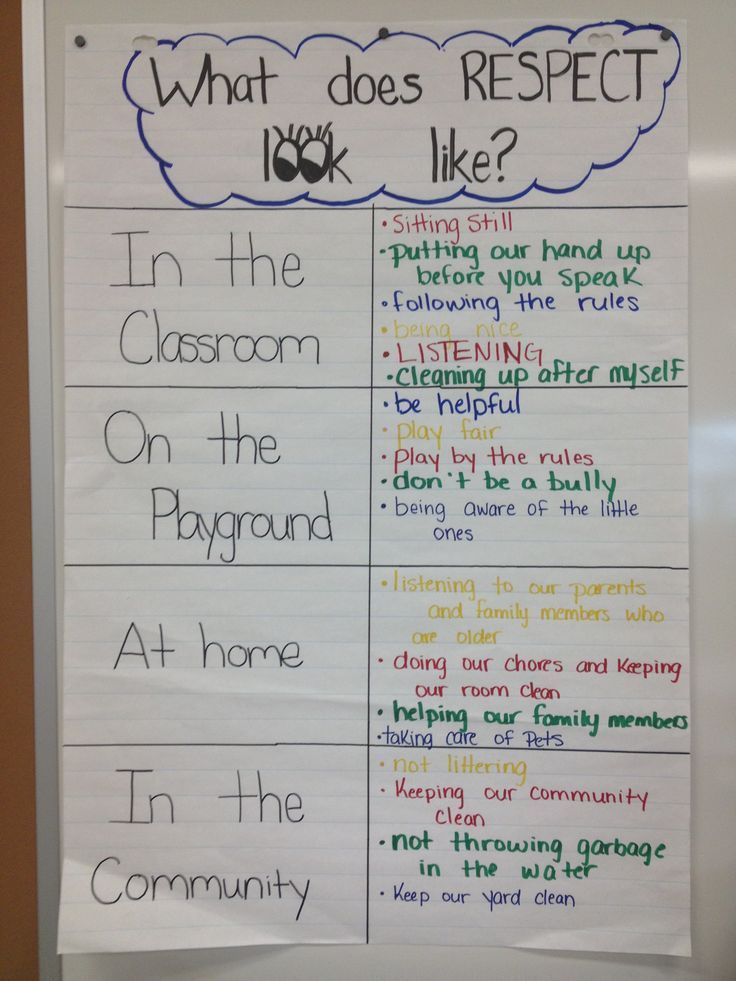 I can’t overstate how important it is to be willing to look at your children realistically, noting both their strengths and their areas of weakness. Being realistic allows you to see inappropriate behavior as it happens and address it—and not make excuses or ignore it.
I can’t overstate how important it is to be willing to look at your children realistically, noting both their strengths and their areas of weakness. Being realistic allows you to see inappropriate behavior as it happens and address it—and not make excuses or ignore it.
How can you change the culture in your own home if disrespectful behavior is starting—or is already a way of life? Here are nine things you can do as a parent today to start getting respect from your kids.
1. Remember That Your Child Is Not Your Friend
It’s not about your child liking you or even thanking you for what you do. It’s important to remember that your child is not your friend. He’s your child. Your job is to coach him to function effectively in the world and behave respectfully to others, not just you.
When you think your child might be crossing the line, a good rule of thumb is to ask yourself, “Would I let the neighbor say these things to me? Would I let a stranger?” If the answer is no, don’t let your child do it, either.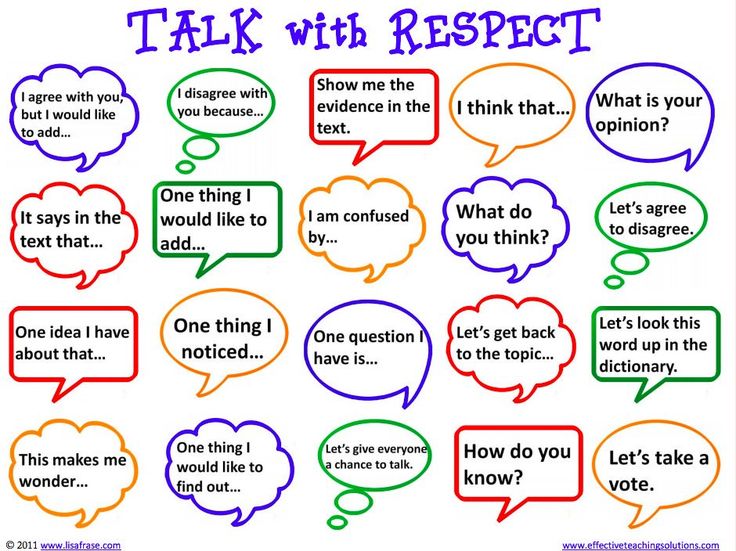
Someday when your child becomes an adult, your relationship may become more of a friendship. But for now, it’s your job to be his parent, his teacher, his coach, and his limit setter—not the buddy who lets him get away with things.
2. Confront Disrespect Early and Often
It’s good to confront disrespectful behavior early, if possible. If your child is rude or disrespectful, don’t turn a blind eye. Intervene and say:
“We don’t talk to each other that way in this family.”
Giving consequences when your kids are younger is going to pay off in the long run. As a parent, it’s crucial that if you see your child being disrespectful to admit it and then try to nip it in the bud.
Also, if your child is about to enter the teen years (or another potentially difficult phase) think about the future. Some parents I know are already planning how they will address behavior as their ADD daughter (who is now 11) becomes a teenager. They’re learning skills to prepare for their interactions with her at a later time. This preparation can only help them as they move forward together as a family.
This preparation can only help them as they move forward together as a family.
3. Parent as a Team
It’s beneficial for you and your co-parent to be on the same page when it comes to your child’s behavior. Make sure one of you isn’t allowing the disrespectful behavior while the other is trying to intercede. Sit down together and talk about your rules, and then come up with a plan of action—and a list of consequences you might give—if your child breaks the rules.
Related content: When Parents Disagree: How to Parent as a Team
4. Teach Your Child Basic Social Interaction Skills
It may sound old fashioned, but it’s important to teach your child basic manners like saying “please” and “thank you.” When your child deals with her teachers in school or gets her first job and has these skills to fall back on, it will go a long way.
Understand that using manners—just a simple “excuse me” or “thank you”—is also a form of empathy. It teaches your kids to respect others and acknowledge their impact on other people. When you think about it, disrespectful behavior is the opposite of being empathetic and having good manners.
When you think about it, disrespectful behavior is the opposite of being empathetic and having good manners.
5. Be Respectful When You Correct Your Child
When your child is disrespectful, correct them in a respectful manner. Yelling and getting upset and having your own attitude in response to theirs is not helpful. Getting upset only escalates their disrespectful behavior. The truth is, if you allow their rude behavior to affect you, it’s difficult to be an effective teacher.
Instead, you can pull your child aside and give them a clear message of what is acceptable. You don’t need to shout at them or embarrass them.
One of our friends was excellent at this particular parenting skill. He would pull his kids aside, say something quietly (I usually had no idea what it was), and it usually changed their behavior immediately.
Use these incidents as teachable moments by pulling your kids aside calmly, making your expectations firm and clear, and following through with appropriate consequences.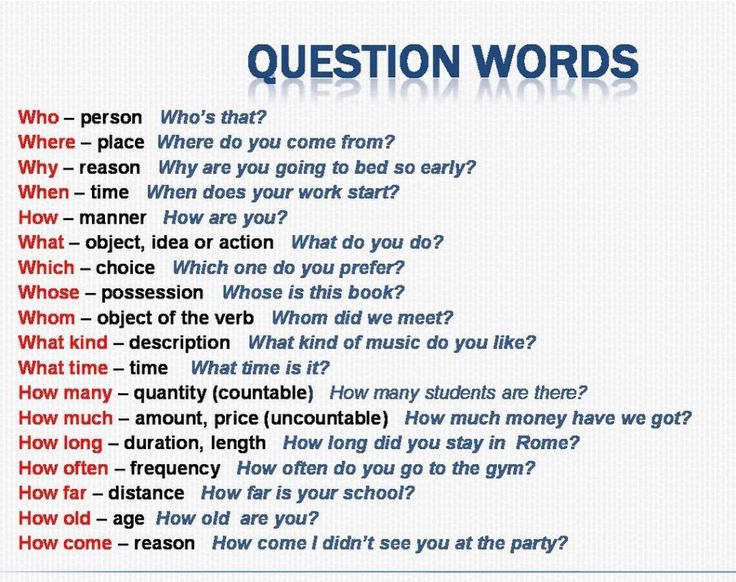
Related content: How to Give Kids Consequences That Work
6. Set Realistic Expectations for Your Child’s Behavior
Being realistic about your child’s behavior patterns may mean that you need to lower your expectations. Don’t plan a huge road trip with your kids, for example, if they don’t like to ride in the car. If your child has trouble in large groups and you plan an event for 30 people, you’re likely to set everyone up for disappointment, and probably an argument.
It is often helpful to set limits beforehand. For example, if you’re going to go out to dinner, be clear with your kids about your expectations. Clear expectations will help your child behave and, in some ways, will make them feel safer. They will understand what is expected of them and will know the consequences if they don’t meet those expectations. If they meet your goals, certainly give them credit, but if they don’t, follow through on whatever consequences you’ve set up for them.
7.
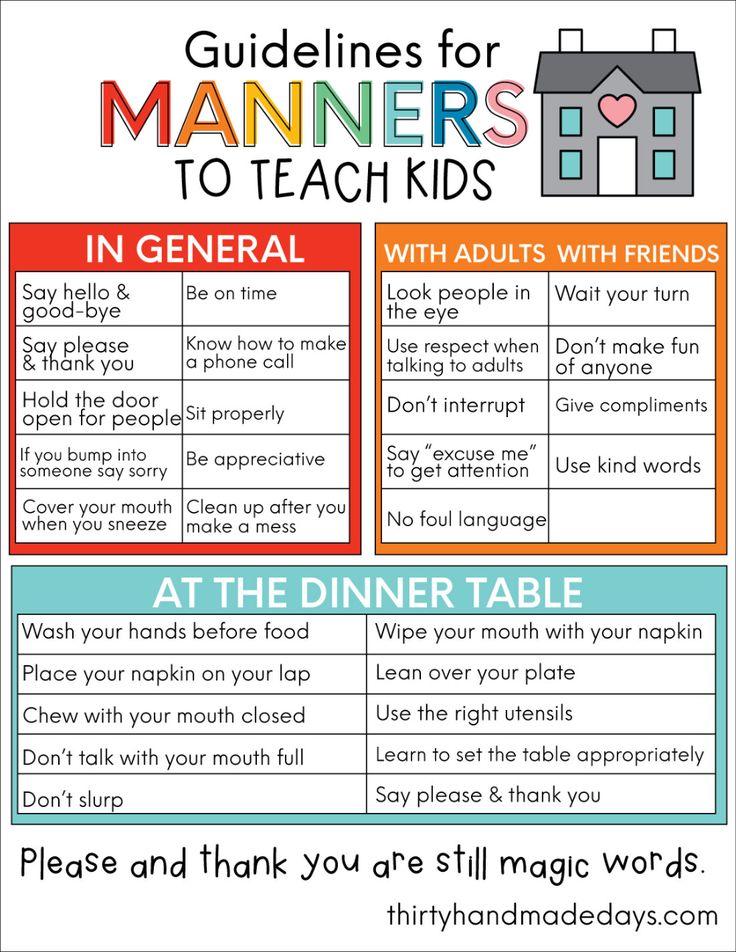 Clarify the Limits When Things Are Calm
Clarify the Limits When Things Are Calm When you’re in a situation where your child is disrespectful, that’s not the ideal time to do a lot of talking about limits or consequences. At a later time, you can talk with your child about her behavior and your expectations.
8. Discuss Disrespect When Your Child is Calm
If your child is disrespectful or rude, talk about what happened once things are calm. Talk about how it could have been dealt with differently. A calm conversation is a chance for you to listen to your child and to understand her problem better. Try to stay objective. You can say:
“Pretend a video camera recorded the whole thing. What would I see?”
This is also a perfect time to have your child describe what she could have done differently.
9. Don’t Take Your Child’s Behavior Personally
One of the biggest mistakes parents can make is to take their child’s behavior personally. The truth is, you should never fall into that trap because the teenager next door is doing the same thing to his parents.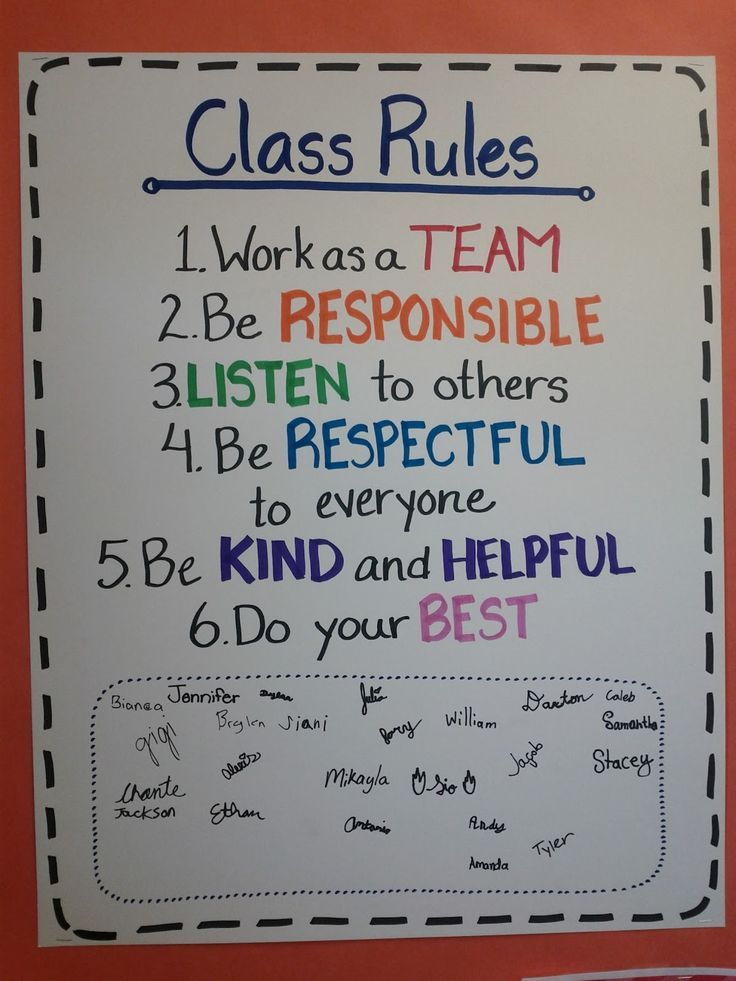 And your cousin’s daughter is doing the same thing to her parents. All kids have conflicts with their parents. Your role is to just deal with your child’s behavior as objectively as possible.
And your cousin’s daughter is doing the same thing to her parents. All kids have conflicts with their parents. Your role is to just deal with your child’s behavior as objectively as possible.
When parents don’t have effective ways to deal with these kinds of things, they may feel out of control and get scared. As a result, they often overreact or underreact to the situation. When they overreact, they become too rigid. And when they underreact, they ignore the behavior or tell themselves it’s “just a phase.” Either way, it won’t help your child learn to manage his thoughts or emotions more effectively. And it won’t teach him to be more respectful.
Conclusion
Understand that if you haven’t been able to intervene early with your kids, you can start at any time. Even if your child is constantly exhibiting disrespectful behavior, you can begin stepping in and setting those clear limits.
Kids really do want limits, even if they protest. And they will protest! The message that they get when you step in and set limits is that they’re cared about, that they’re loved, and that you really want them to be successful and able to function well in the world.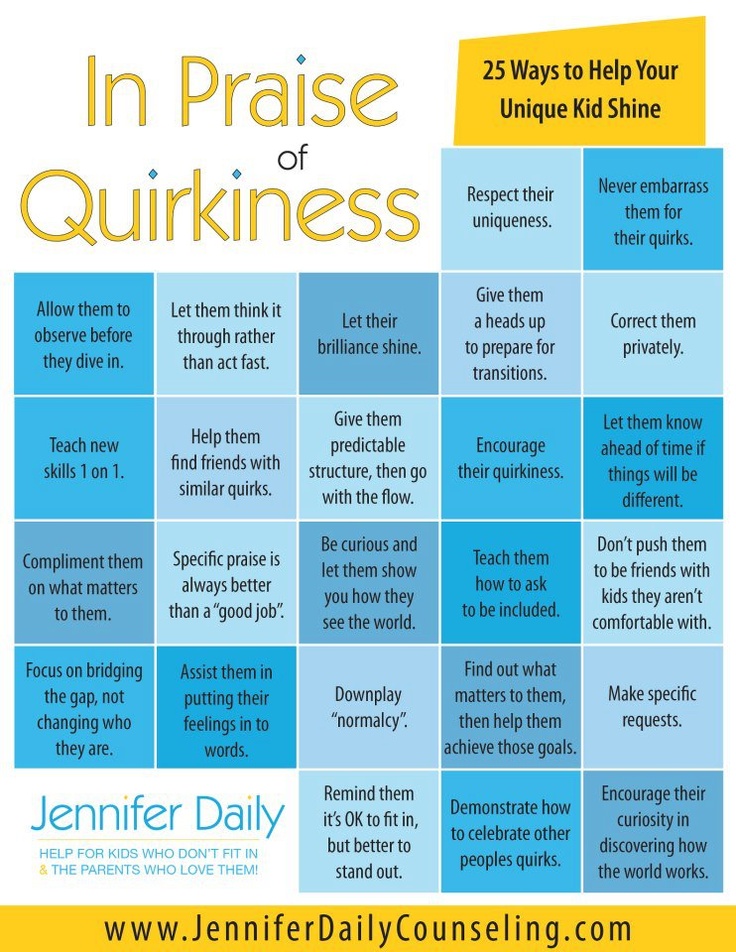 Our kids won’t thank us now, but that’s okay. It’s not about getting them to thank us, it’s about doing the right thing.
Our kids won’t thank us now, but that’s okay. It’s not about getting them to thank us, it’s about doing the right thing.
Empowering Parents Podcast: Apple, Spotify, Google, Stitcher
How to become an authority for your child
home
Parents
How to raise a child?
How to become an authority for your child
- Tags:
- Expert advice
- 3-7 years
- 7-12 years old
- teenager
Many parents wonder how to make their child respect them, be obedient and accommodating, fulfill requests the first time and never contradict them. We used to think that it is possible to bring up such behavior in a child if the parent is an authority for him. However, according to the theory of attachment, each parent is such from the very beginning, so authority does not need to be specifically won, but one must be able not to lose it. Moreover, with age, the authority of the parent in the eyes of the child decreases, or rather, it changes. And this mechanism was wisely created by nature, because a person who worships parents and who is completely dependent on them will not be able to live an independent successful life. “I am a Parent” decided to figure out what parental authority is and whether it should be brought up in children.
And this mechanism was wisely created by nature, because a person who worships parents and who is completely dependent on them will not be able to live an independent successful life. “I am a Parent” decided to figure out what parental authority is and whether it should be brought up in children.
In fact, in a normal family, where education is given sufficient attention, most of the time the child obeys moms and dads. Moments of defiance are temporary or are the result of various deep causes. One of these reasons may be mistakes made in communicating with the child.
It is customary to distinguish several types of erroneous behavior of parents, which, as they think, allows you to get what you want from the child, but in fact has the opposite effect.
The authority of repression is the most common parenting misconception about parenting. Afraid to seem weak and weak-willed to the child, the parent (more often the father) goes too far in the opposite direction: toughens punishments even for minor offenses, often uses physical or psychological violence. This style of parenting instills in the child fear of the father or mother, but not respect for them. In addition, such behavior of parents demonstrates to the baby that the main thing in life is strength, and whoever is stronger is right.
This style of parenting instills in the child fear of the father or mother, but not respect for them. In addition, such behavior of parents demonstrates to the baby that the main thing in life is strength, and whoever is stronger is right.
The authority of pedantry is somewhat similar to the previous parenting style. Parents demand unquestioning obedience from the child, the fulfillment of their orders. The opinion of a son or daughter is usually ignored, since the views of the parent are considered the only true ones. This usually leads to the fact that over the years the child never learns to formulate his own opinion, his position, gets used to fulfilling other people's requirements, waiting for orders instead of taking his own initiative.
Softer, but no less negative, is the authority of edification. Using it, parents try to prevent the child's erroneous behavior with the help of teachings, long explanations and edifying conversations repeated over and over. At the same time, they do not take into account that a preschooler is physically unable to listen to long speeches, and a teenager has heard them so many times that he stops listening to any words of his parents at all, waiting for the next moralizing.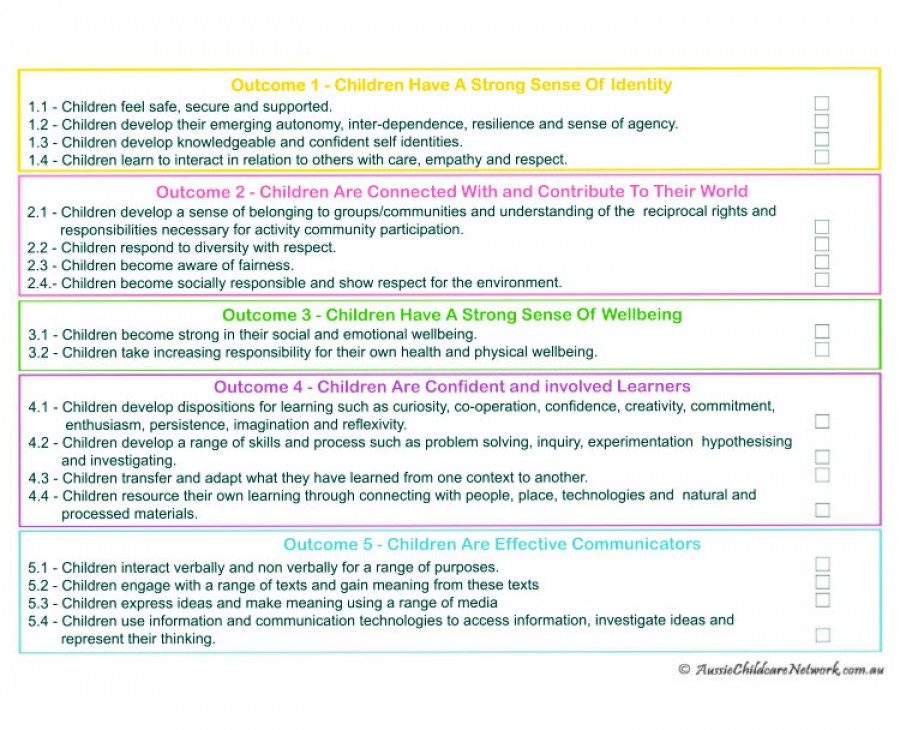
The false authority of love is considered quite common. In families with such an approach to education, excessive demonstration of love to others (and not the child), insincere praise and admiration are accepted. Parents, manifesting themselves in this way, count on reciprocal “love”. But the child feels insincerity, especially when the behavior of the parents "in public" and alone with him is very different. He can completely close or start protesting, showing aggression. With age, it may become the norm for him that love is the subject of “commodity-money” relations.
When using the false authority of kindness, parents indulge any whims of children, encourage permissiveness and impunity. Thus, wanting to appear kind in the eyes of the child or avoid any conflict, parents deprive the son or daughter of the important experience of establishing boundaries. Children need restrictions in order to feel support, to navigate in the world around them. In the absence of this experience, they suffer, which manifests itself as sharply negative or aggressive behavior.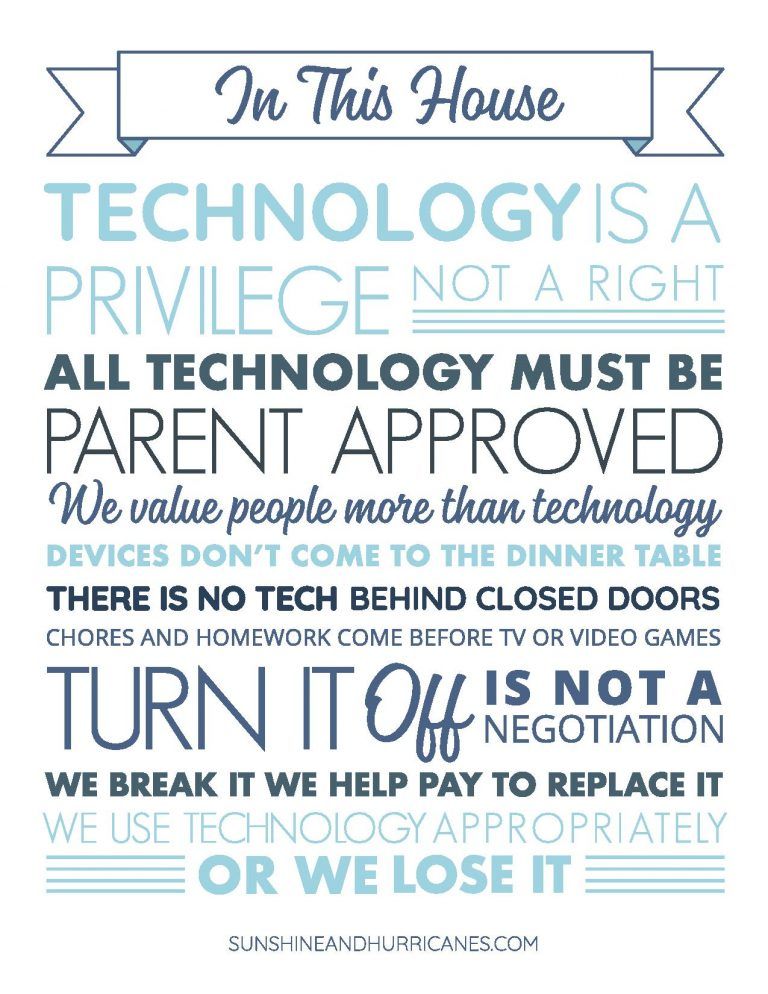
Another type of false authority is the authority of bribery. Good behavior is exchanged for gifts, toys or sweets, at an older age - good study involves the purchase of gadgets, that is, the cost of "toys" increases. This way of influencing the child's behavior or academic performance is assimilated by him quickly enough, which leads to the appearance of a small manipulator in the family. There is a danger that material motivation will become the only one for the child, that is, he will behave well, study and, subsequently, build relationships with people only if he receives material benefits from this.
People who have achieved great heights in their careers may abuse the authority of their parental position. Often setting themselves as an example for a child, such parents may cause not a desire to imitate, but a fear of not meeting the high expectations of dad or mom and disbelief in their own strengths (“I will never achieve such results”). With age, this fear can develop into self-doubt, into a feeling of inferiority.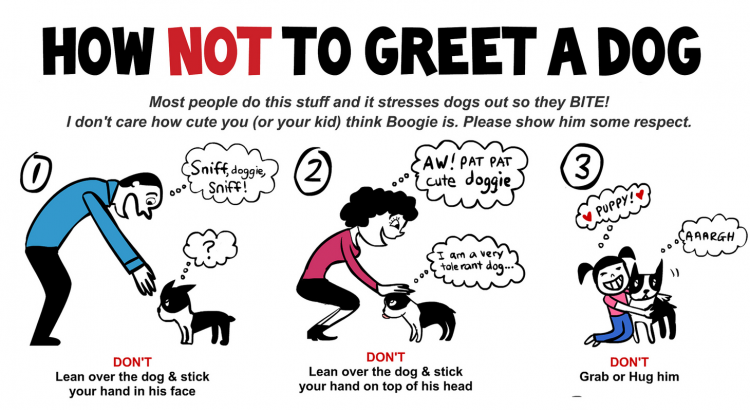 At the same time, relationships with a parent who uses this type of false authority take on the character of a quiet confrontation - a teenager can consciously or subconsciously provoke his anger with his constant failures or refusal to study, for example.
At the same time, relationships with a parent who uses this type of false authority take on the character of a quiet confrontation - a teenager can consciously or subconsciously provoke his anger with his constant failures or refusal to study, for example.
In their extreme manifestations, all these ways of influencing a child can lead to complete suppression of his independence or, conversely, to absolute uncontrollability. But in both cases, parents lose respect for their own child.
The main thing is to notice your own erroneous behavior in time, admit it to yourself and start correcting it. Of course, this is difficult to do right away, and one should not demand from oneself an immediate change in behavior.
However, we can gradually learn how to confirm our role as an authoritative parent by actions and take into account the stages of maturation of our child. It is important to remember the following:
-
A child learns to show respect if he sees how you show it yourself - to him, to his spouse, to people around him.
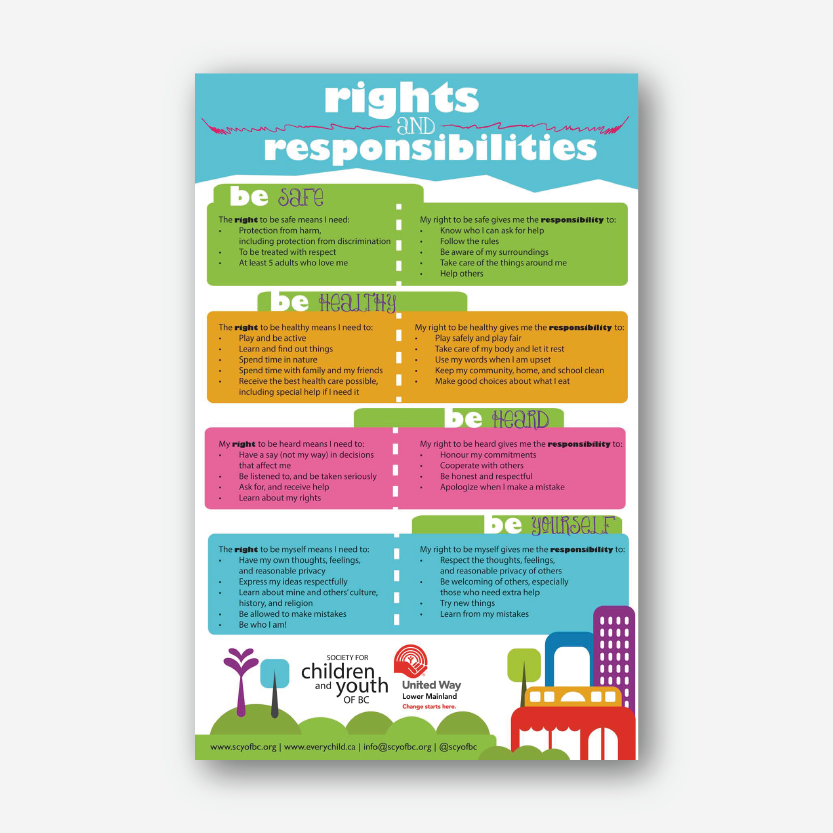 And for your authority to be based on respect, it must be mutual. In this regard, it is necessary to completely exclude from education physical and psychological punishments that degrade the dignity of the child. The statement “fearing means respecting” is fundamentally wrong.
And for your authority to be based on respect, it must be mutual. In this regard, it is necessary to completely exclude from education physical and psychological punishments that degrade the dignity of the child. The statement “fearing means respecting” is fundamentally wrong. -
Accept both positive and negative emotions of the child: the one who understands you and accepts you as you are inspires respect and trust.
-
Trust is also impossible without mutual honesty. Be honest with your child, promise only what you will do, let your words match your actions. Do not lie even on small things, as some "little things" can be important things in the eyes of your son or daughter, and children intuitively feel a lie.
-
Admit your mistakes and ask for forgiveness. Do not be afraid to look weak or stupid in the eyes of a child if you make a mistake. If you are wrong, but still stand your ground, it harms your authority more than a worthy recognition and correction of the situation.
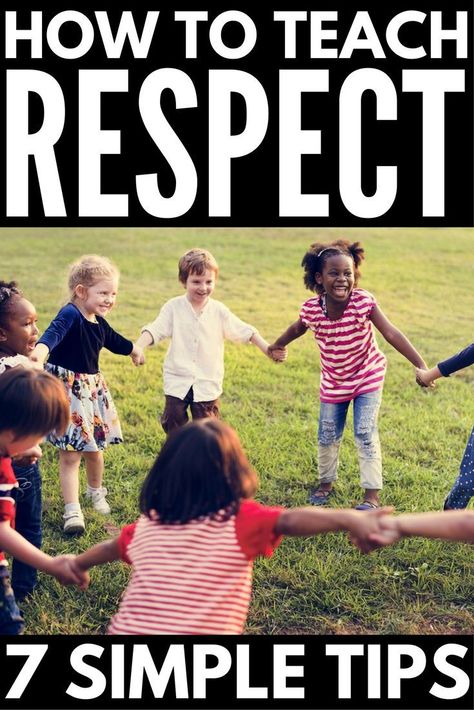 In addition, in this way you will teach the child not to be afraid of his own mistakes in the future.
In addition, in this way you will teach the child not to be afraid of his own mistakes in the future. -
Set boundaries and allow your child freedom within those boundaries. Together with the student, formulate family rules so that he feels that his opinion is taken into account.
-
Demand from children only what you yourself fulfill. Otherwise, the child will intuitively feel injustice and resentment, and subsequently will act according to your model. A teenager may begin to rebel in such a situation, and his rebellion will be fully justified.
-
The older the child, the more important it is to accept the fact that he is a separate person from you, who may have different views or opinions from yours. And you, of course, can influence them by expressing your point of view, but you should not force the child to think your way. Therefore, if you formulate the question: “What should I do so that the child obeys unquestioningly and looks at the world the same way as I do?” - then psychologists will not be able to help you with this (and, I hope, they will not help), and your efforts can lead to completely unpredictable consequences.
 In any case, this will definitely not make a child happy.
In any case, this will definitely not make a child happy. -
At any age, do not forget to show your love for a child, of course, taking into account age characteristics. If a preschooler can be hugged and kissed, and he will only be happy about it, a teenager is likely to perceive this as a violation of his personal boundaries. It is necessary to show all your tact and sensitivity in order to show how much you love your growing child. But, having succeeded in this, you will become a real authority for him.
In a word, parental authority is not based on fear or coercion. It is based on mutual trust, respect and love. And your child will follow you if you are able to justify the trust of the kid, respect the opinion of the student and love the teenager so much that you can allow him to seek other authorities for himself.
Anastasia Vyalykh ,
Psychologist of the portal “I am a Parent”
What type of upbringing do you use?
We have compiled a test for you that determines the prevailing type of upbringing in your family, and we have also developed some recommendations based on the test results so that your child develops most harmoniously.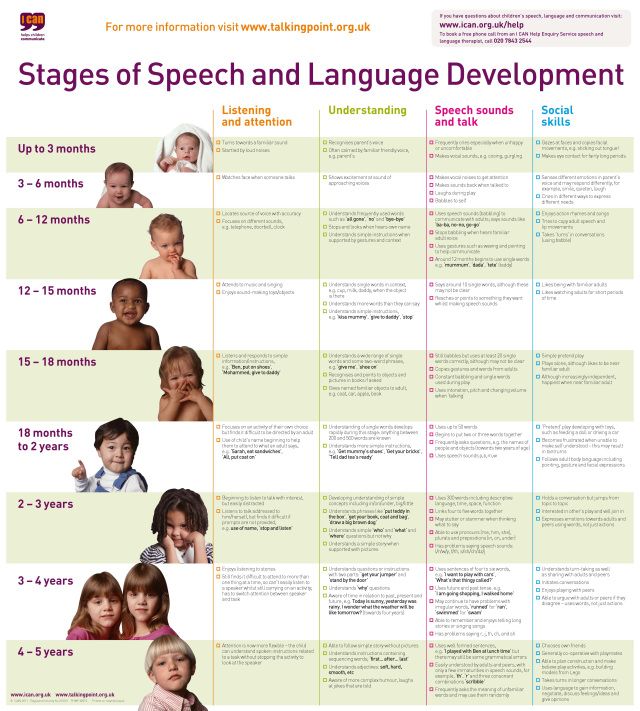
Pass the test
How to win authority over a child?
Raising respect in children for adults: for their father, mother, grandparents, and so on, is not an easy task. It is not always possible for parents to win the respect of a child. And this is extremely necessary. We will understand this problem through a system of answers to frequently asked questions from parents.
Whose authority in the family should be higher: father or mother?
The statement itself is incorrect. Both parents should be authoritative for the child. Something else is more important here. In no case can you assert your dictate. The other extreme is also unacceptable, when one parent constantly humiliates the other. And it does not depend on the gender of the parent. The main thing to remember is that one cannot build one's authority on the humiliation of family members. The child will learn bad things very quickly and at the end of his training he will surprise you, because he will not respect either the opinions of family members or themselves.
Is it necessary to show love towards a son? Wouldn't that make him slobbery?
Love doesn't make you drool. This is the result, rather, of dislike and tyranny. Demonstrate, of course, if you don't want your child to doubt your feelings for him. At the age of 12-13, teenagers just have such thoughts. In addition to demonstrating your feelings, it is necessary that the child is not shy about you and, with his friends, can kiss you when parting or meeting (if, for example, it is customary for you).
How to get the respect of the son, if the father earns less than the mother?
Respect does not depend on the amount of salary, but on the attitude of other family members towards a working father. If the father is energetic and does a business that he knows, then, in fact, it does not matter whether he earns more or less than his mother. After all, everything goes into the "family pot". It is important to form in the child respect for work as such. When the basics of morality are brought up, the child will not measure his attitude towards his father in rubles, which he receives for his work.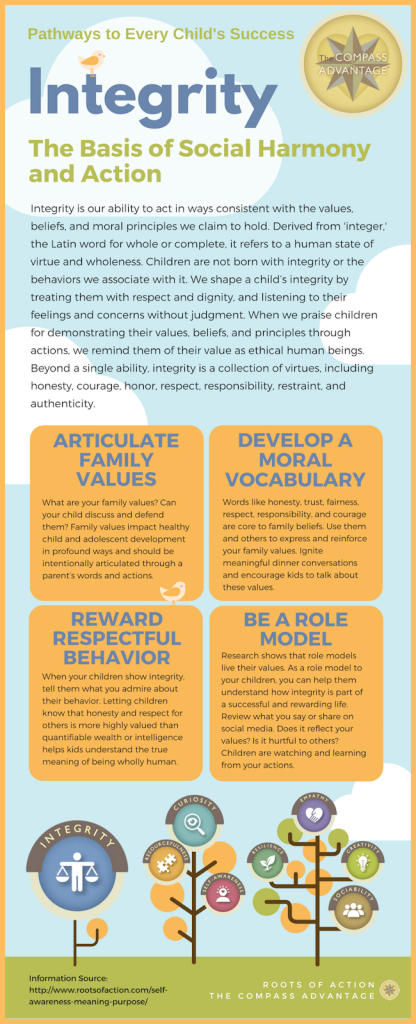
What to do if a child respects family members, but treats strangers with disdain, and sometimes aggressively?
This is a very dangerous delusion for him. As a rule, if a child already knows how to maneuver in accordance with the circumstances, then there can be no question of true respect for family members. Most likely, this is a mask that he put on in the hope of some kind of benefit.
Folk wisdom says: "Affectionate calf sucks two wombs," and the child has learned this well and uses it. There is an urgent need to reverse the situation. It all depends on the age of the child. Of course, the older he is, the more difficult it is to do this. But you can't sit back and do nothing. In this situation, most likely, one of the family members really enjoys the respect of the child. You can rely on this in educational work.
You need to start with confidential conversations, call the child to be frank, encourage him to explain why he has such a negative attitude towards someone, explain, set a personal example, transfer the actions of other people to his life and ask him to answer what he would do in order to achieve respect for others.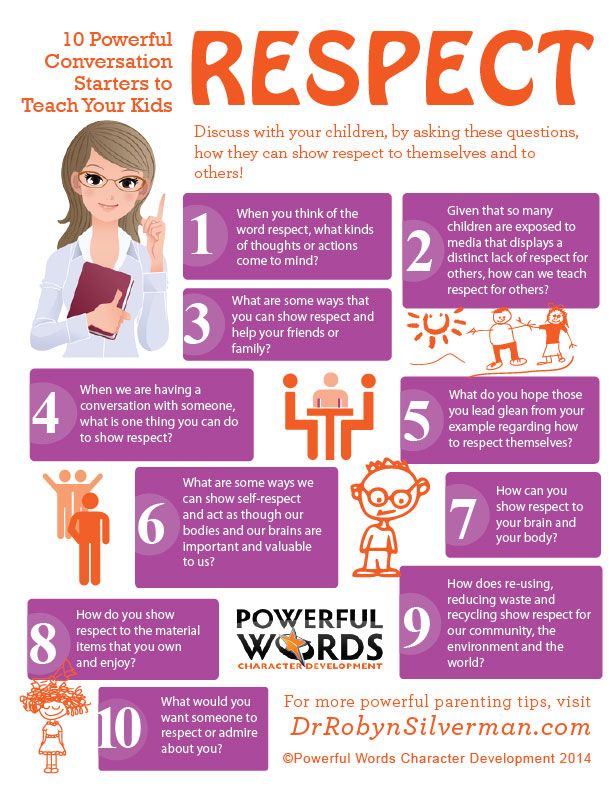 Or maybe be more drastic. For example, to deprive him of some benefits for misconduct. The deprivation may be temporary.
Or maybe be more drastic. For example, to deprive him of some benefits for misconduct. The deprivation may be temporary.
How to maintain the authority of the child during the divorce of the father and mother?
Quite difficult. Much of this depends on the atmosphere of the divorce. If the parents part calmly, without anger, without strain, then there is a chance to remain authoritative for the child, and if he is small, explain to him, taking into account the age, the reason for the separation. If the child is a teenager, you need to act very carefully and not injure him. This is very dangerous for teenagers. Parents' attempts to win them over to their side have a particularly negative effect on the child. In no case do not make your child a "member of the military union." Apart from the destruction of his personality, this action will not lead to anything good. The safest and most constructive option is when the child, with whomever he stays with during the divorce, sees the second parent and feels his care and support.